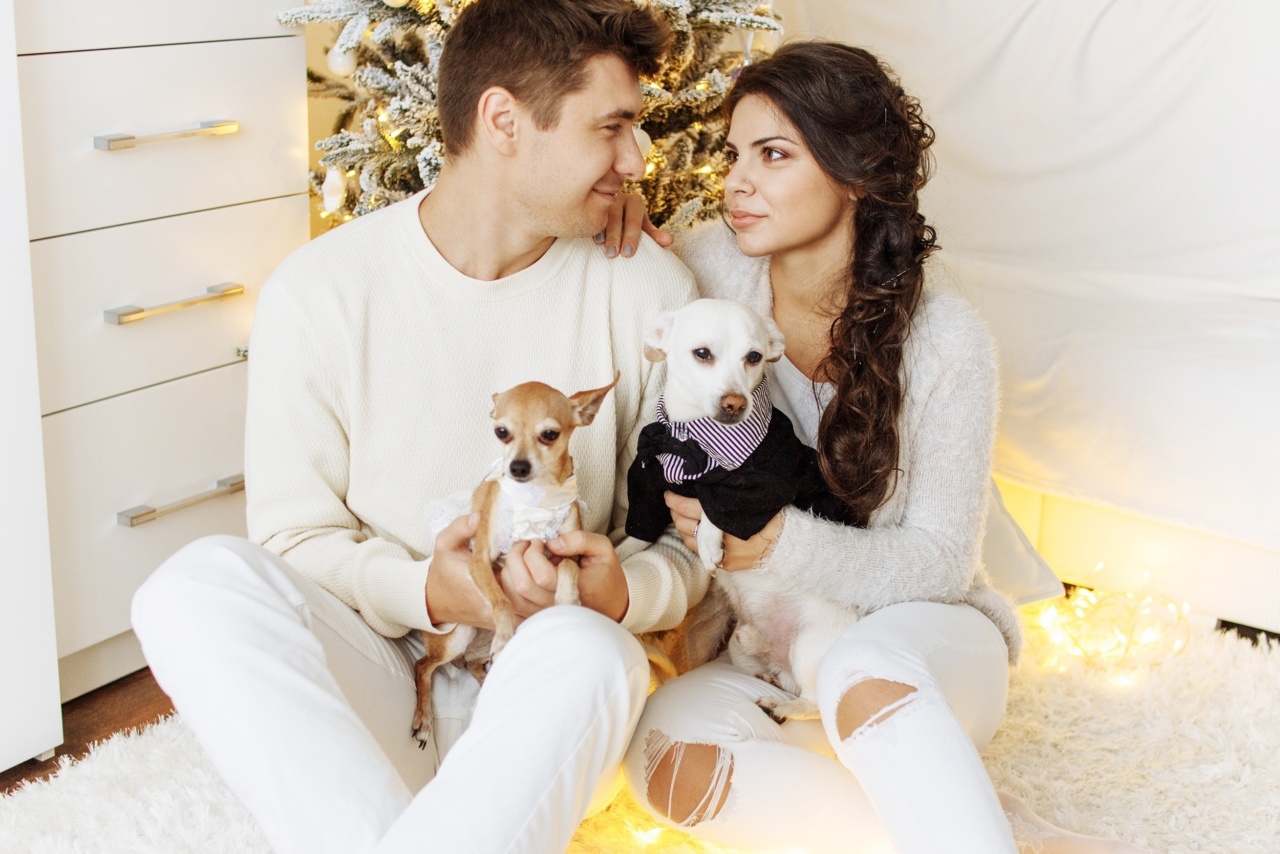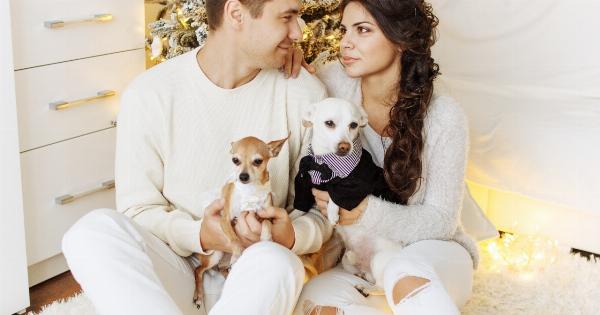The holiday season is a joyous time for many, filled with celebrations, family gatherings, and all the hustle and bustle that comes along with it.
As we get caught up in the cheerful chaos of Christmas, it’s important to remember that our furry friends are also experiencing the effects of this festive season.
The Festive Season and Our Canine Companions
For dogs, the holiday season can be both exciting and overwhelming. The sudden changes in their environment, routine, and the presence of unfamiliar visitors can easily disrupt their sense of security and well-being.
It’s crucial for pet owners to understand how the chaos of Christmas affects their beloved pets and take necessary steps to ensure their comfort and safety during this time.
1. Increased Noise Levels
One of the most noticeable changes during the holiday season is the increase in noise levels. Dogs have sensitive hearing, and the loud music, fireworks, party chatter, and even the sound of gift wrapping can be overwhelming for them.
Some dogs may become anxious or fearful due to the constant noise, leading to stress-related behaviors such as barking, trembling, or attempting to escape.
2. Changes in Routine
Dogs thrive on routine, and any disruptions to their usual schedule can cause distress. During the holidays, routines are often altered to accommodate festivities and gatherings.
Regular walks, playtime, and meal times may be postponed or shortened, leaving dogs feeling unsettled and unsure. Maintaining an as consistent schedule as possible can help alleviate their anxiety.
3. Decorations and Hazards
Decorating our homes is a cherished part of Christmas, but it can pose certain risks to dogs.
Christmas trees with delicate ornaments, tinsel, and lights can be irresistible to our canine companions, leading them to chew, swallow, or become entangled in these decorations, potentially causing choking hazards or digestive issues. It’s important to secure the tree and keep valuable ornaments out of reach.
4. Holiday Foods and Possible Toxicity
The festive season brings an abundance of delicious treats and indulgent meals, but some of these foods are toxic to dogs. Chocolate, raisins, onions, garlic, and certain nuts can be harmful if ingested.
It’s important to ensure that all festive foods are stored safely out of reach and educate guests about the potential dangers of offering such foods to our four-legged friends.
5. Visitors and Socialization
Christmas is often accompanied by an influx of visitors and gatherings. While some dogs are social butterflies and love the attention, others may become overwhelmed by the constant presence of new people.
It’s crucial to create a safe space for dogs to retreat to if they feel stressed or anxious. Providing them with a quiet room or a designated area with familiar toys and comfortable bedding can help reduce their anxiety.
6. Traveling and Pet Care
Many people travel during the holidays, leaving their dogs in the care of others or taking them along for the journey. Both options can cause stress for the dog.
New environments, different routines, and the absence of their owners can lead to separation anxiety or situational stress. It’s important to ensure that the dog’s needs are met while traveling or if they’re left with a caretaker.
7. Holiday Parties and Fireworks
Christmas parties and New Year’s Eve fireworks are highlights of the festive season, but they can be overwhelming for dogs. The loud noise and chaotic atmosphere can trigger anxiety or fear responses.
Creating a calming environment with white noise machines, closing curtains to reduce light flashes, and providing a safe and secure space can help minimize their stress.
8. Gift Opening and Engaging Your Dog
As we unwrap presents and engage in gift exchanges, it’s important to involve our dogs in a safe and controlled manner. Dogs may be curious about the wrapping paper, ribbons, and the new items in the house.
Supervision is essential to prevent them from ingesting small parts, plastic, or other potentially harmful materials. Offering them appropriate chew toys, treats, or their own gift can keep them entertained and reduce their desire to investigate the presents.
9. Winter Weather and Outdoor Activities
For those celebrating Christmas in colder climates, it’s vital to consider your dog’s well-being when engaging in outdoor activities. Cold weather, snow, and ice can pose risks such as hypothermia or frostbite.
Always monitor your dog when they are outside and provide them with appropriate outerwear if necessary. Limiting the time spent outside in extreme temperatures and ensuring they have access to fresh water can help keep them safe and healthy.
10. The Importance of Routine and Comfort
To ensure your dog’s well-being during the Christmas chaos, it’s important to prioritize their routine, comfort, and specific needs. Stick to their regular feeding and exercise routines as much as possible.
Provide them with a quiet space where they can retreat to when they need a break from all the commotion. Incorporating activities such as puzzle toys, interactive play, or training sessions can help keep their minds occupied and minimize stress.
Conclusion
While the Christmas chaos can impact our dogs, being aware of their needs and taking proactive measures to minimize stress and ensure their well-being is crucial.
By understanding the potential effects of noise, changes in routine, decorations, holiday foods, visitors, travel, parties, and cold weather, we can make this festive season safe and enjoyable for our beloved furry companions. So, let’s remember to keep our dogs in mind as we celebrate, ensuring they have a stress-free and happy holiday season!.






























